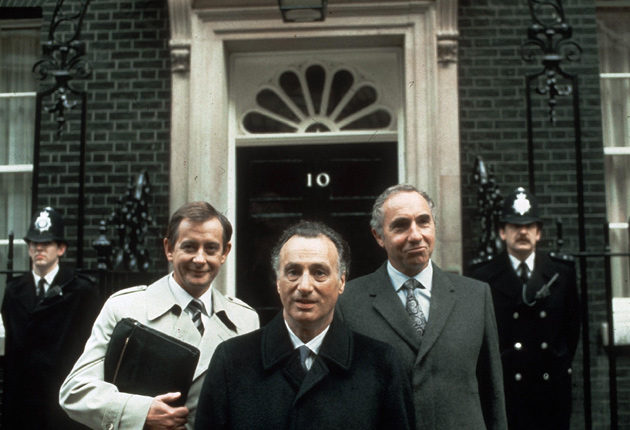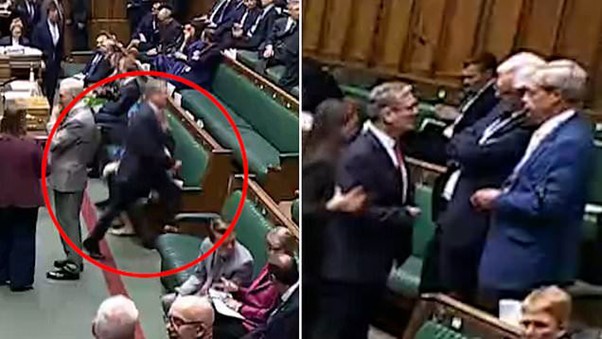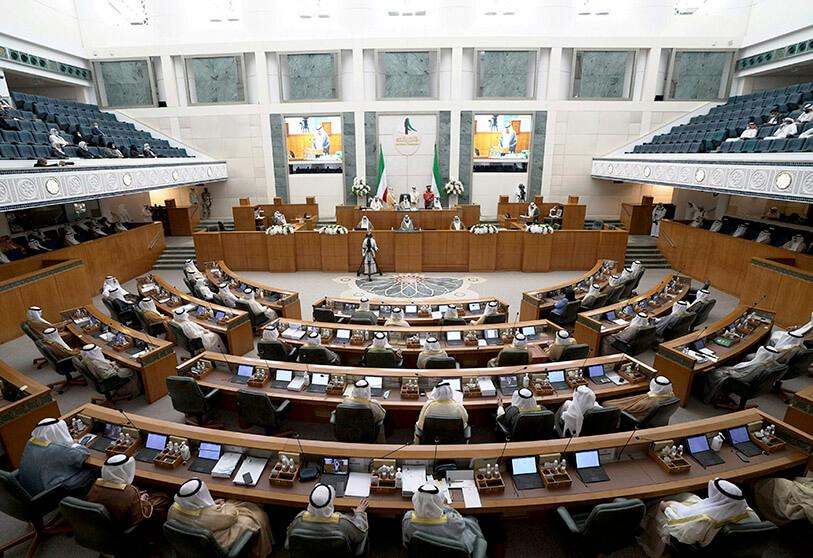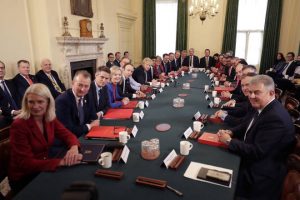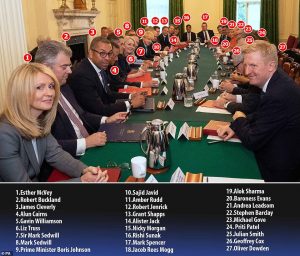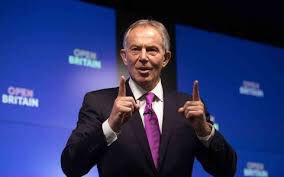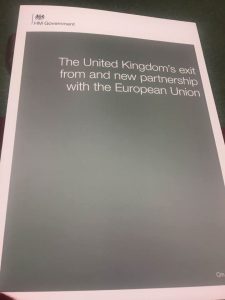By Adel Darwish
There was a time when the Labour Party could summon idealists, intellectuals, and political giants from the pavements of Britain. The Fabian Society debated the future of civilisation, not the future price of printer toner. Its members wrote books, not bullet points; they dealt in ideas, not invoices. They spoke of building a better world, not balancing the petty cash drawer. Today, the party’s intellectual inheritance has been pawned for a stack of spreadsheets, and its ideological flame entrusted to a woman we now know, affectionately and despairingly, as Rachel from Accounts.
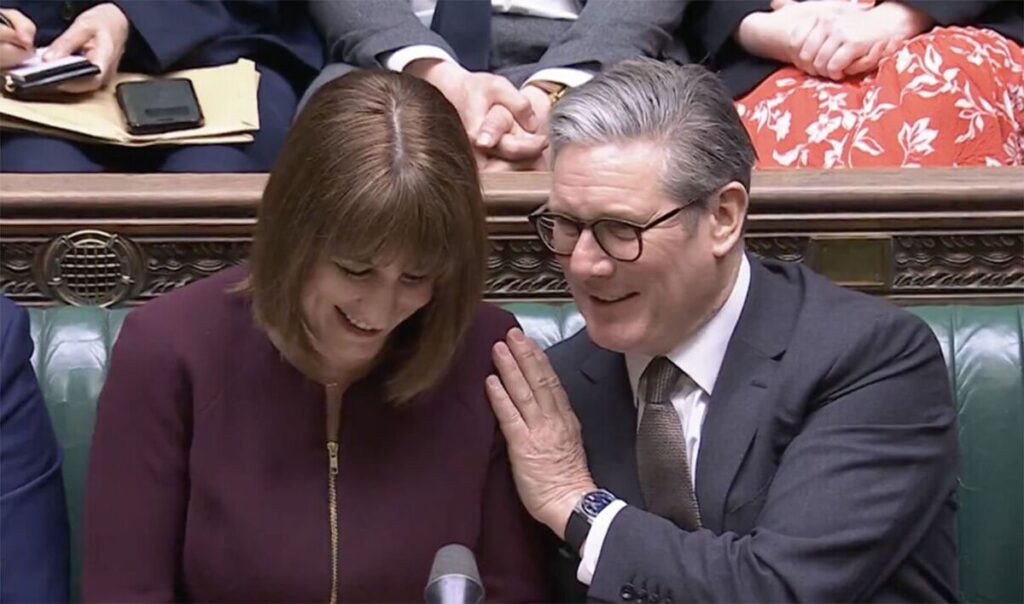
(The Express picture)
Political nicknames rarely land with such devastating accuracy. This one encapsulates not merely her demeanour but her method: the belief that government is a question of reconciled columns rather than reconciled ambitions. The Budget she delivered on Wednesday did not feel like a national plan. It felt like an internal memo leaked from an HR director defending cuts to the biscuits fund. And yet this is the moment Labour promised would herald a “new era” — a Britain rejuvenated, reenergised, and ready to lead. Instead, Rachel Reeves produced the long talked about written with the emotional range of a procurement manual. It wasn’t a Budget; it was a defibrillator applied to the dying political career of Sir Keir Starmer. It bought him time, nothing more. The economy was merely the collateral.
Let us be clear: Reeves did not govern — she bargained. Her primary audience was not Britain but Labour’s backbenches. The Budget was one long bribe disguised as fiscal discipline, designed to placate the party’s left flank, who, having mistaken slogans for policy, now regard taxation as a sacrament and aspiration as a sin. Seven Labour MPs already had the whip withdrawn for rebelling over the two-child benefit policy, only for a U-turn this week; this Budget was the ransom note required to forestall further mutiny.
Meanwhile, Starmer, a man increasingly resembling a hostage reading demands under duress, watched his Chancellor hack away at the country in order to keep the party intact. It is governance in reverse: the Starmer-Reevs regime survives, the nation pays.
Reeves’s media round the morning after confirmed what the Opposition, economists, and even cheery breakfast presenters warned all along: Labour’s election promises were fantasy. Reeves was repeatedly challenged on the simple arithmetic she once dismissed as cynicism. Freezing the income tax threshold at £12,570, she insisted, was not a tax rise. This was a heroic attempt to redefine the English language. Independent think tanks note the threshold freeze will leave families on around £35,000 a year £1,400 worse off — a hit far larger than a modest 1p or 2p rise in income tax would have delivered. In other words, Reeves has achieved the political miracle of taxing the many more painfully than taxing the few.
Then came the leaks — a farce that would embarrass a parish council, let alone the Treasury. Reeves held a Budget press conference two weeks early, despite the long-standing, near-sacred principle of Budget secrecy. Shadow Chancellor Mel Stride pointed out, with barely suppressed disbelief, that releasing market-sensitive fiscal measures ahead of time isn’t merely foolish — it is potentially illegal. Even the Deputy Speaker rebuked her, an act as rare in Parliament as a unicorn sighting.
And then the crowning humiliation: the Office for Budget Responsibility uploaded the entire Budget online forty minutes before she spoke. It vanished shortly thereafter, but the damage was done. Reeves stood at the Despatch Box like someone gamely reading out a surprise party invitation that had already been tweeted by the venue. Ministers once resigned for less. Reeves shrugged.
For context, when Hugh Dalton whispered a few Budget titbits to a journalist while walking into the Commons in 1947, he resigned the next day. When Jimmy Thomas leaked the Budget proposals in 1936, he left the Cabinet and public life. Reeves did not merely whisper; she broadcast — and yet she remains, the beneficiary of a political age that has forgotten what shame feels like.
But the true scandal is not procedure; it is purpose. Labour has raised £26 billion in taxes without allocating a penny to growth. Not a farthing for productivity. Nothing for enterprise. No relief for the industries crippled by the Net Zero policy. Reeves has built a fiscal fortress without an exit — a country where money circulates but does not multiply, where public services are funded but no wealth is created to sustain them.
Consider the property tax raid: heralded as a strike against the idle wealthy, it raises just £400 million — scarcely 1.5% of the total tax take. A drop in the Red Sea. Yet its ideological purpose is vast. It punishes those who are not deemed “working people” — the retired, landlords, homeowners who have saved rather than spent. These individuals will now either increase rents, worsening the housing crisis, or sell assets, withdrawing supply entirely. Schools, orphanages, and hospices with buildings worth more than this arbitrary threshold could be caught in the crossfire. Reeves has taxed philanthropy and called it justice.
Meanwhile, the wealth creators Labour insists have nowhere else to go have, in fact, gone. 10,800 millionaires left the UK in 2024 — many of them business owners and investors. The Adam Smith Institute calculates that replacing the tax contribution of a single millionaire requires 49 ordinary taxpayers. Reeves has effectively exported the fiscal equivalent of the population of Manchester. Britain has become the world’s only country where you are free to make money, provided you do it somewhere else.
Here lies the eulogy for Labour’s soul. The party of Attlee and Bevan sought to expand opportunity; the party of Reeves and Starmer seeks to itemise it. Old Labour asked how to build a future. New Labour asks how to fund yesterday. The Fabians once dreamed of progress. Rachel from Accounts dreams of a tidy balance sheet.
She has not crashed the economy. She has audited it into paralysis.
And the irony? The only growth Labour has delivered is in political nicknames. Reeves may yet go down in history not as Britain’s first female Chancellor but as the woman who proved that when you run a country like a spreadsheet, you eventually discover the nation has clicked “Delete” — and moved abroad.
End
